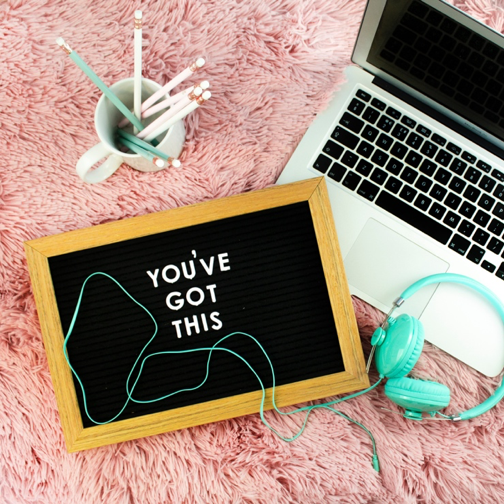Underestimating the power of self-care is common. In fact, many caregivers and those in the position of helping others view self-care from a lens of guilt. They think that by caring for themselves, they are indulging and losing focus on what’s more important: caring for others.
It turns out this is far from the truth. Self-care is critical. When you don’t give yourself the care you need, you aren’t in the best position to care for others. Only when you’re at your strongest and healthiest in mind, body

Preventing Burnout
Incorporating self-care practices into your life can prevent burnout. Burnout from caregiver stress can manifest into fatigue, insomnia, irritability, weight gain, feelings of hopelessness and social isolation. All of these conditions prevent you from being your best version of yourself.
This is true for anyone with a demanding, person-centered job. Regularly interacting with people in crisis can take a significant toll on your health. By practicing self-care, you’re not only preventing burnout, but you’re also improving your everyday quality of life.

3 Quick and Simple Ways to Practice Self-Care and Change Your Life
Now that you’ve gotten past the misconception that self-care is a guilt-worthy indulgence, it’s time to explore some ways you can care for yourself — so you feel your best and can be your best.
Quick Means More Possible
Caring for yourself doesn’t have to take a ton of time. Furthermore, if you start with lofty goals, such as exercising four times a week, you may find it impossible to maintain. You’ll feel like a failure and be back where you started.
Small Steps on the Journey to a Better You
The trick is to incorporate small, simple strategies into your life. Once you have these included in your everyday life, you can build upon them with more healthy choices. This is a slow, sustainable evolution to a better, healthier you.
Here are three quick ways to take care of yourself that can have a significant positive impact on your life.

1. Practice Mindful Breathing in Short Bursts
There are many reported benefits to practicing mindfulness. From better control over emotions to improved sleep, the benefits can significantly improve your quality of life.
As you practice mindfulness, you are strengthening the connections in your brain. As a result, you improve the overall functioning of your mind as well as calm and regulate your mood.
How to Practice Mindfulness
The best part is how easy practicing mindfulness meditation can be:
- Sit comfortably
- Close your eyes
- Focus on your breath
- Silently say to yourself with each breath “I’m breathing in; I’m breathing out.”
- When you notice a thought, simply say “aware” and return to your breath
Piggyback mindfulness into everyday tasks. For example, whenever you find yourself waiting, don’t pick up your phone. Instead, practice a few minutes of mindful breathing.
Thoughts Are Your Friends During Mindful Meditation!
Many people who try mindful meditation become frustrated because thoughts get in the way. On the contrary: Thoughts aren’t getting in the way; they are giving you an opportunity to notice your thinking and become present to your breath again.
In a five-minute session, you could lose yourself to your thoughts over and over. The key is bringing yourself back to your breath. Each time you do that, you are practicing mindfulness.

2. Create a Nighttime Ritual
Getting the right amount of sleep is not only important for your overall health, but it’s also essential for your emotional state. When you’re fully rested, you can handle challenges better, are less likely to overreact and have more patience.
One key way of ensuring a better night’s sleep is by creating a nighttime ritual. This routine helps train your body to relax. Moreover, it will help you fall asleep faster and stay asleep longer.
How to Create a Nighttime Ritual
Start by setting a time to be in bed. A couple of hours before, turn off the screens. The blue light these screens cast can signal your brain to stay awake.
Before retiring for the night, set the stage for sleep:
- Play soothing music
- Put lavender in your essential oil diffuser
- Read your favorite book
- Listen to a quick guided meditation
These relaxing and calming steps are signaling your brain and body to relax.
Consistency Is Key
The key is to be as consistent as possible with your nighttime ritual. Try to be in bed at roughly the same time each night. You can even set an alarm on your phone when it’s time to start your nighttime ritual.
There will be some nights when you are short on time. Try to incorporate at least one of your rituals every night, such as diffusing lavender essential oil or listening to music.
3. Incorporate Exercise Into Your Day by Working In
While the idea of working out seems like yet another demand on your already burdened schedule, you can slip small bursts of exercise into your day, called working in. These small working in sessions that you fit into your everyday life can have a real positive effect on your overall health.
Finding opportunities to work in can feel like a fun game. In contrast, working out can feel like a time-consuming chore.
How to Work In
Try incorporating mini exercises into your day:
- Do a few pushups before you get in the shower
- Do a few squats while brushing your teeth
- Sit with your back against the wall and your knees bent while waiting for the microwave
- Do a few sit-ups during commercial breaks
- Stand on one leg while waiting in line
Challenge yourself to increase the reps each week. Setting goals also keeps the working in fun.

Small Self-Care Steps Motivate
By practicing these three small self-care steps, you’ll notice you feel better overall. You’ll see improvements in your strength and mindset.
Not only are you getting stronger in mind, body and spirit, but you’ll also be more motivated to make other healthier choices.
Craving More Nutritious Food
For instance, when you prioritize your self-care, you may notice you are eating healthier as well. You’ll naturally be drawn to the fresh, whole foods that make your body feel well after you eat them.
Enjoying Your Free Time
You may also notice you’re spending more of your free time engaging in hobbies you enjoy and fulfill you. Instead of reaching for your phone and staring at your screen, you may decide a brisk walk is what you need.
While these three self-care steps don’t take much time, they will have a real impact on how you live your life — and show up for others.





